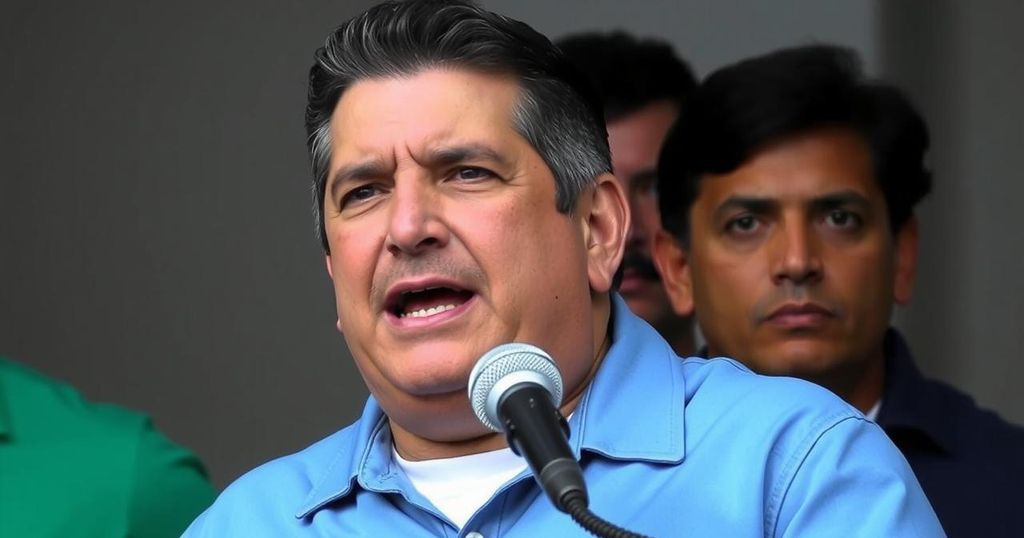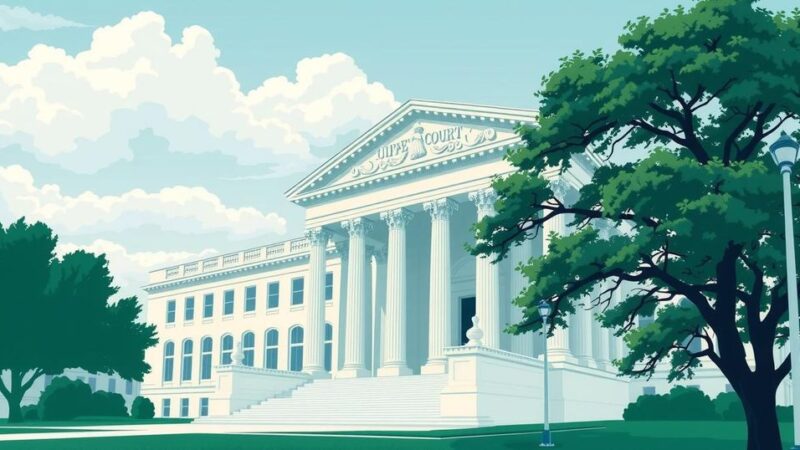The Maduro government has offered a $100,000 reward for information on exiled opposition candidate Edmundo Gonzalez, just days before the President’s third inauguration following contested elections. The opposition claims electoral fraud, asserting Gonzalez as the rightful winner, amidst widespread criticism of human rights abuses in Venezuela, including arbitrary arrests and torture.
The Venezuelan government, led by President Nicolas Maduro, has instigated a significant move by offering a reward of $100,000 for information regarding the whereabouts of opposition candidate Edmundo Gonzalez, who is currently in exile. This announcement was made merely eight days before Maduro’s anticipated swearing-in for a third term after a contentious election held in July. The underlying political turmoil remains fraught with accusations of election fraud and civil rights violations, garnering international scrutiny and condemnation.
In the wake of the contentious July elections, Maduro’s administration had issued an arrest warrant for Gonzalez, positioning the reward announcement as part of a broader crackdown on dissenters. The Venezuelan Scientific, Criminal and Forensic Investigations Agency shared a social media post styled as a “wanted” poster, reflecting the regime’s aggressive stance against opposition figures. Conversely, the opposition claims that Gonzalez emerged as the legitimate winner of the election, contrasting Maduro’s assertion of victory.
Regional leaders and observers have voiced skepticism regarding Maduro’s claimed victory, further intensifying calls for the government to disclose voter data that would clarify the election outcomes. Amid escalating tensions, Gonzalez departed for Spain; however, recent reports suggest he is currently heading to Buenos Aires, Argentina. The Maduro regime has faced mounting global condemnation due to reported human rights abuses including arbitrary arrests and torture following the elections, with nearly 2,000 arrests and 23 fatalities documented.
As Maduro’s third inauguration approaches, United Nations human rights experts have urged the Venezuelan authorities to uphold civil liberties, especially the right to peaceful protest. Marta Valinas, President of the group, emphasized the necessity for citizens to exercise their rights without the fear of retaliation. The international community, including Argentina and Brazil, has heightened scrutiny on the Venezuelan government’s actions, particularly in light of Argentina’s severed diplomatic relations and allegations of enforced disappearances linked to the Maduro administration’s crackdown on dissent.
In conclusion, the Venezuelan political landscape remains steeped in conflict and human rights concerns. The Maduro government’s offer of a reward for information on Gonzalez underscores the regime’s severe repression of opposition leaders, while simultaneous pressures from the international community amplify calls for transparency and accountability in Venezuela’s governance. As nations grapple with ongoing reports of abuses, the world’s attention remains fixed on the implications of Maduro’s new term and the fate of democracy in Venezuela.
The controversy surrounding the Venezuelan elections has deepened, particularly following reports of widespread claims of electoral fraud by opposition groups. In the months leading up to the presidential inauguration, Maduro’s government has continued to face scrutiny from human rights organizations and international observers, highlighting a series of human rights violations. With a growing number of political prisoners and a crackdown on dissent, the situation has become a focal point for human rights advocacy globally.
In summary, the Maduro government’s reward for the capture of Edmundo Gonzalez reflects its aggressive tactics against dissent and illustrates the volatile political climate in Venezuela. Amid claims of election fraud and calls for civil liberties, the international community remains vigilant, demanding transparency and humanitarian considerations in the face of escalating authoritarianism.
Original Source: www.aljazeera.com






